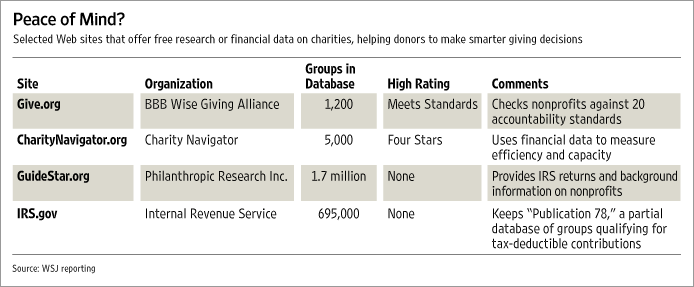Dave Ramsey Says Financial Advisors Help Boost Return They Amateur Asset Allocator
Post on: 19 Апрель, 2015 No Comment

Last weeks post about the quality of Dave Ramseys investment advice got a lot of attention. Today, Id like to focus one just one of the claims Ramsey made in the March 11, 2013 episode of his podcast (free on itunes ). In it, he states that individual investors who invest with the help of a qualified financial advisor earn approximately 3% more per year on average compared to investors who dont invest with the help of financial advisor. Heres the exact quote at around 27:20:
On average several different studies show that the investor using an investment professional to assist them in their purchase makes an average of 3% more on their money. They choose better funds, they stay in when the market turns down, and the big factor is they stay in when the market turns down.
Do Advisors Boost Returns?
Is there any truth to Ramseys claim? I was immediately skeptical. While I obviously cant keep on top of everything, I do a lot of reading on this subject and found it odd Id never heard of any such studies. Usually when somebody mentions a study, Im at least familiar with its existence, even if Ive never actually read it. Not so, this time. And Ramsey, unfortunately, didnt cite any sources.
After some digging, I couldnt turn up any conclusive evidence such a study exists. Thats not to say it doesnt exist, just that a fair amount of digging didnt turn anything up. I did find one study, often mentioned, titled The Impact of Financial Advisors on the Stock Portfolios of Retail Investors by Marc Kramer and Robert Lensink (open as pdf ) which found that, on average, individual investors in individual stocks who invested with the help of a financial advisor did earn returns about 3% in excess of investors who didnt engage the services of an advisor.
The problem with the above study is obvious: it only applies to retail investors in individual stocks and not to mutual fund investors of the kind Ramsey (and I, and practically all experts) is talking to/about when he gives out financial advice. I have no proof, but I suspect what happened is that Ramsey read the abstract of this (or a similar) study and misinterpreted the results as supporting his position when, in reality, it says nothing about the ability of advisors to influence the returns of mutual fund investors, either positively or negatively. Barring good evidence to the contrary, this seems the simplest and most likely explanation of Ramseys statement. Is anybody out there aware of the exact study/studies Ramsey was referencing when he made that statement? If so, Ill buy you a beer.
Theres Some Evidence They Dont
While there is plenty of evidence good advisors can add value by acting as ledge insurance, as Ramsey puts it, and keeping investors from shooting themselves in the foot when the market get choppy, Ive seen no evidence that advisors, on average, are actually better investors than the average DIYer. They dont have a magical ability to pick mutual funds that beat the market and they dont have the ability to time the market. While advisors do tend to put their clients in slightly better mutual funds than they would otherwise invest in, they fee they charge tends to be even larger than any resulting gain.
Consider the following overview of a 2009 study by Hacketal, Haliasso, and Jappelli. the uninterpreted results were that investors who delegate portfolio management to a financial advisor achieve on average greater returns, lower risk, lower probabilities of losses and of substantial losses, and greater diversification through investments in mutual funds . Sounds like a slam-dunk in favor of advisors, right? Not so fast!
The authors found that advisor-investor pairing is not random and cannot be treated as such (which would be required if youre to believe Ramseys claim). Advisors tended to be matched with richer, older investors rather than younger, poorer ones. Once controlling for those factors, the authors found advisor actually, as a group, subtracted value by hurting returns and increasing risk. Does this mean advisors dont know what theyre talking about? No! It means that even if they add value to the account, they tend to over-charge for their services, leading to a net loss in value.
Not That Financial Advisors Cant Provide Value
The above findings represent the average case. On average and in a perfect world, most people would be better off educating themselves and investing on their own in low-cost index funds. Unfortunately, hardly anybody is an average investor and we dont live in a perfect world. There is a sizeable population of investors who are truly better off investing with the help of a competent financial professional. After all, the fact that on average advisors extract value isnt particularly meaningful if youre one of the investors who, for whatever reason, just arent very good at managing your own money.
Maybe you need somebody to talk you off the ledge, teach you the basics (with the heart of a teacher as Ramsey is so fond of saying), make you stay the course, and prevent you from trading too much. This is an area where a good advisor could really make a positive contribution to your financial well-being. The problem, of course, is that theres no guarantee this type of investor tends to attract the good advisors. It stands to reason that somebody who doesnt know enough about markets to invest on their own probably also doesnt know enough to be able to sort the good advisors from the bad and just might end up being taken advantage of. Whats the solution to this dilemma? I dont know. But I doubt Dave Ramseys ELP program does much to remedy the situation.














